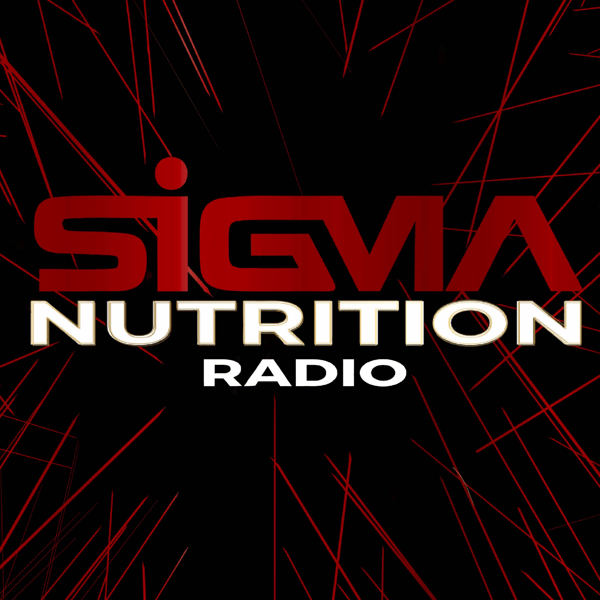#538: Can Fish Oil Supplementation Increase Risk of Irregular Heart Rhythms?
Sigma Nutrition Radio
Danny Lennon
4.8 • 626 Ratings
🗓️ 8 October 2024
⏱️ 55 minutes
🧾️ Download transcript
Summary
Omega-3 fatty acids are often viewed as beneficial or, at worst, neutral supplements when it comes to supporting cardiovascular health, lowering triglycerides, and offering anti-inflammatory effects. Much of the focus in recent years has centered on understanding how significant these benefits are, particularly for heart health, with many studies highlighting the potential for omega-3s to play a positive role in reducing cardiovascular risk. However, an emerging concern has complicated the conversation around omega-3 supplementation.
Several large trials, including the REDUCE-IT and STRENGTH trials, have suggested that omega-3 supplementation might be linked to an increased risk of atrial fibrillation (AF), a common cardiac arrhythmia characterized by an irregular and often rapid heart rate. These findings have sparked debate over whether omega-3s could contribute to this potentially serious heart condition, leaving clinicians and health-conscious individuals uncertain about the safety of these supplements.
However, not all the research supports this elevated risk. This discrepancy raises important questions about how we interpret the data from various studies, the design of those trials, and whether other factors might be influencing these results.
Understanding this issue in depth is crucial for making informed decisions about omega-3 supplementation and its potential risks and benefits. In this episode we walk through the studies and the key points to consider.
Timestamps:
- 00:30 Updates on Alan’s upcoming study
- 05:06 Atrial Fibrillation and Omega-3
- 14:52 RCTs and AFib: Key Studies
- 29:14 Meta-Analyses and Dose-Response
- 46:46 Practical Implications and Recommendations
- 53:53 Key Ideas Segment (Premium-only)
Links:
Transcript
Click on a timestamp to play from that location
| 0:00.0 | Hello and welcome to another episode of Sigma Nutrition Radio. This is episode |
| 0:18.5 | 538 of the podcast. My name is Lennon and with me is Dr. |
| 0:24.6 | Alan Flanagan Alan how are you I'm very well thanks yeah enjoying the last of the summer |
| 0:30.4 | wine yes it may be the end of summer but in the months ahead you have some |
| 0:35.0 | exciting work going on in your research and with some of the |
| 0:39.4 | studies that you've got planned. I'm not sure how many details you can give yet or not, but it |
| 0:43.9 | seems like super exciting times ahead. Yeah, I actually can give some details because we got |
| 0:48.2 | ethical approval about two weeks ago. So we are looking at, it's a very interesting question. So most of our listeners that |
| 0:57.6 | kind of geek out on the chrono biology and chrono-nutrition stuff will probably know that we have |
| 1:03.3 | clocks, as we would call them, throughout the body. We have a central clock in the brain, |
| 1:07.7 | which is primarily synchronized to the light dark cycle, |
| 1:11.5 | primarily sensitive to light as a time queue. And now we know that we have clocks in peripheral |
| 1:18.5 | tissues like the liver and digestive system, et cetera, and basically every cell throughout the body. |
| 1:23.0 | But from a nutrition perspective, we've some human evidence now that rhythms, for example, |
| 1:28.8 | like plasmic glucose, can shift in accordance with delays in meal timing while the central |
| 1:34.9 | clock stays synchronized to the light dark cycle. But in rodent models, if you place a rodent on a 30% |
| 1:43.1 | energy deficit, a very interesting observation has been noted, |
| 1:46.4 | which is that the central clock, which we always assume is just anchored to the like dart cycle, |
| 1:51.1 | has shown evidence of synchronizing to meal timing. |
| 1:54.5 | And basically, we're testing that in humans. |
| 1:57.0 | So we've got a 12-night discharge on day 13, inpatient laboratory study. |
| 2:02.4 | It's going to be otherwise healthy young participants. |
... |
Please login to see the full transcript.
Disclaimer: The podcast and artwork embedded on this page are from Danny Lennon, and are the property of its owner and not affiliated with or endorsed by Tapesearch.
Generated transcripts are the property of Danny Lennon and are distributed freely under the Fair Use doctrine. Transcripts generated by Tapesearch are not guaranteed to be accurate.
Copyright © Tapesearch 2025.

